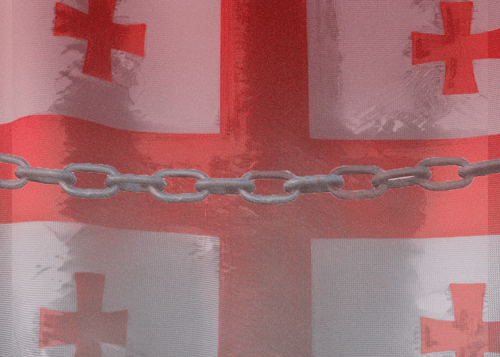
Georgia's EU Dream hanging in the balance
”I am Georgian and therefore I am European,” declared by the late PM Zurab Zhvania in 1999, is a sentiment engraved in the consciousness of the Georgian people and enshrined in the 78th article of the Georgian constitution: ”The constitutional bodies should take all measures within their powers to ensure the full integration of Georgia in the European Union and the North Atlantic Treaty Organisation.” Despite Georgia's long- standing desire for EU integration, the recent adoption of the controversial ”foreign influence” law by the ruling party has put the country's EU ambitions on hold. This law requires entities and media outlets receiving over 20% of their income from foreign sources to register as ”agents of foreign influence,” thereby stigmatising EU-funded projects.
Weeks-long mass demonstrations against the bill were accompanied by caution by Georgia’s Western allies. Yet, in defiance of the warnings, the bill was adopted, resulting in deteriorated diplomatic relationships that now affect not only individual politicians but the entire Georgian society.
EU distancing from Georgia
EU Ambassador to Georgia Paweł Herczyński explained that the ”foreign influence” bill has caused a regression in the nine essential reforms required for joining the European Union. Additionally, the government’s anti-Western rhetoric has led to a historic low in mutual relations. Georgia’s exclusion from the EU enlargement was devastating for the pro-Western majority of the population (82%), especially considering the ongoing EU membership talks with Moldova and Ukraine.
In response, the EU has frozen €30 million in assistance to Georgia’s ministry of defence and is considering additional measures if the political situation further declines. Furthermore, the German ambassador to Georgia Peter Fischer announced Germany’s decision not to expand any financial commitments regarding Georgia, the cancellation of an ”important legal forum,” and withdrawal from the joint military exercise Noble Partner—a move previously mirrored by Georgia’s long-term strategic partner, the US.
A major security concern for Georgian citizens is the NATO Washington Summit Declaration adopted on 10 July, which, for the first time since the 2008 Bucharest Summit resolution, fails to mention Georgia’s irreversible path to membership of the alliance.
Tornike Dvali, the International Consultant in the Field of Social and Economic Rights of the Council of Europe, told The European Correspondent that despite the EU's best efforts to focus sanctions on ruling Georgian Dream (GD) party politicians while minimising their impact on Georgian society, it is - ultimately - the citizens who will bear the brunt of these sanctions. Even with the reassurances from the GD government officials that Georgia will join the European Union by 2030, Mr. Dvali no longer sees European integration as the priority for the current government.
Support for democracy
In response to allegations of EU interference in Georgia, the EU Delegation published funding data for 2019-2024, revealing that Georgia’s state institutions received €517 million, while civil society organisations were allocated €46.1 million.
While Georgia’s political relationship with the Western allies is presently on hold, the EU’s top diplomat, Josep Borrell, reiterated his support for ”Georgian people and their choice in favour of democracy,” a sentiment widely shared among EU leaders. According to ambassador Herczyński, it’s up to Georgians to decide in the parliamentary elections on October 26 whether they want to be part of the next big EU enlargement or pursue a different path for their future.
Constitutional challenge
As the EU raises concerns and distances itself from Georgia, president Salome Zourabichvili, the Georgian public, opposition politicians, and various civic organisations are actively working to uphold Georgia’s commitment to Euro-Atlantic integration, as mandated by the Georgian constitution.
Between the 15 and 17 of July, president Zourabichvili and 121 civil society organisations began submitting appeals to the constitutional court, stating that the government had violated Georgia’s constitutional obligation towards furthering its EU and transatlantic relations. Opposition MPs are expected to follow suit, although the timeline for their appeal remains unclear. While the outcome of the current appeals remains to be seen, Georgians are not giving up on their EU dream.